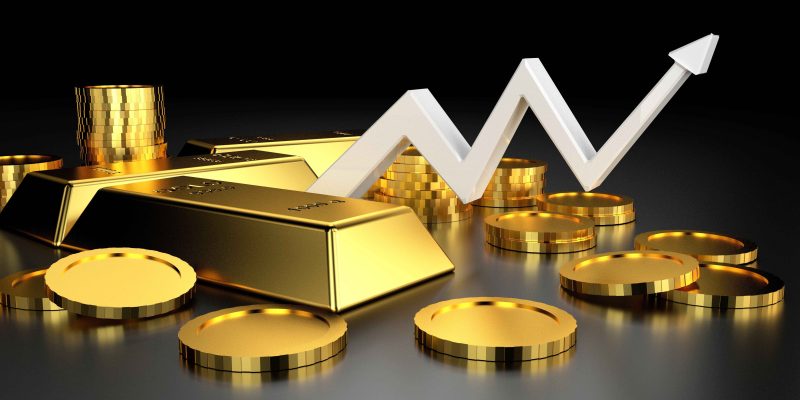Why do investors flock to gold when times get tough economically? As the precious metal hits record highs, AFP explores why it remains such a trusted lifeline in uncertain times.
The trading turbulence sparked by US President Donald Trump’s tariffs has triggered an unprecedented surge in gold prices, which are widely regarded as a safe-haven investment.
On Friday, gold reached an all-time high of $3,227.51 per ounce, marking a more than 20 percent gain since the start of the year.
Additional Benefit from Trump’s Policies
“So far, precious metals bullion has been exempt from US tariffs, likely because they are not considered core industrial products,” said Frank Watson, senior metals analyst at trading platform Kinesis Money.
The aim of Trump’s tariffs is to boost American production and reduce the US trade deficit, but taxing gold would not achieve that goal.

After gold hit a record high at the start of April following Trump’s implementation of reciprocal tariffs, investors sold off gold to obtain liquidity amidst falling stock markets. This caused a temporary dip in gold prices before they rebounded. The metal avoided further declines after Trump unexpectedly paused tariffs for many countries on Wednesday, excluding China.
Retreat of the Dollar
The US dollar has weakened significantly against major rivals following Trump’s tariffs, further enhancing gold’s appeal.
“Gold is an important risk-management asset held by central banks, financial institutions, and retail investors,” Watson said.
Markets are increasingly concerned about the impact of a global trade war on economic growth and are betting that the US Federal Reserve will announce further interest rate cuts to support the world’s largest economy. This is despite the tariffs potentially causing inflation to spike, which would typically lead central banks to raise interest rates.
These expectations of lower borrowing costs are putting pressure on the dollar and diminishing the safe-haven status of US government bonds.
A Rare Tangible Asset
Gold also benefits from its status as a rare, tangible asset. While most people will never own a gold bar, many can afford gold jewellery.
“People want a tangible asset that they can actually own,” said John Reade, a strategist at the World Gold Council.
In an interview with AFP, he added that gold has proven to be a sought-after asset when investors lose confidence in governments and banks, even if it means forgoing dividends or interest on their investment.
“Gold is incredibly rare and doesn’t corrode, making it the ultimate long-term store of value,” noted Watson.
Central Bank Buying Spree
Gold is highly prized by central banks, which further inflates its price by accumulating bullion to hedge against economic hardship, stabilise currencies, and use as collateral for loans and transactions.
In 2024, global central banks added over 1,000 tonnes of gold to their reserves for the third consecutive year, according to the World Gold Council.
“This move was triggered by the invasion of Ukraine and the subsequent confiscation of Russian reserves,” explained Charlie Morris, an analyst at investment research group ByteTree.
Following Moscow’s invasion of Ukraine in February 2022, international sanctions froze the Russian central bank’s foreign exchange reserves held abroad.
The war in Ukraine, coupled with the ongoing conflict in Gaza, has intensified geopolitical uncertainties, further boosting gold’s appeal.













